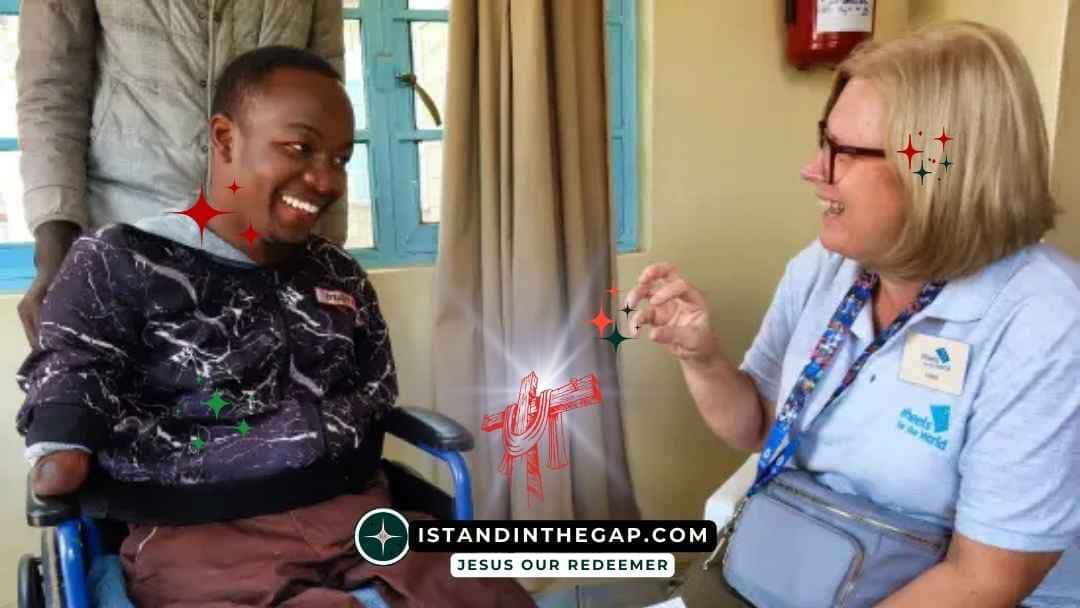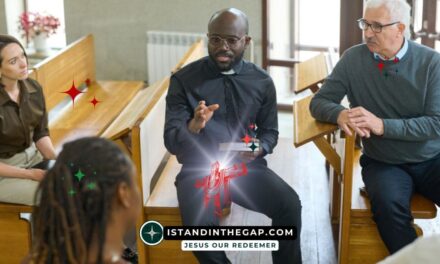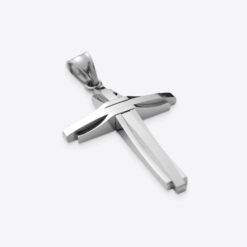Wheels of Hope: A remarkable display of compassion has touched hearts across continents as Christian nonprofit wheelchair donations reach some of Africa’s most vulnerable communities.
The inspiring initiative demonstrates how faith-based organizations continue to bridge gaps in healthcare accessibility, providing life-changing mobility solutions to those who need them most.
When disability meets poverty, the challenges can seem insurmountable. Yet through the dedicated efforts of Christian charities, 142 wheelchairs have found their way to African nations, transforming lives and restoring hope to individuals who had been confined by physical limitations and lack of resources.
This heartwarming story showcases the power of international cooperation and the enduring impact of charitable giving, reminding us that sometimes the greatest gifts come on wheels.
Wheels of Hope: Key Takeaway
- Faith-driven charity delivers 142 wheelchairs to African communities, transforming mobility access for disabled individuals across the continent.
A Mission of Mobility and Hope
The recent wheelchair donation initiative represents more than just medical equipment distribution, and also embodies the Christian principle of serving others with compassion and dignity.
These 142 wheelchairs will directly impact the lives of individuals who previously faced significant barriers to mobility and independence.
Each wheelchair represents a personal story of transformation. For recipients, these devices mean the difference between isolation and community participation, between dependence and self-reliance. The donation addresses a critical need in many African nations where disability services and equipment remain scarce.
The Journey from Donation to Delivery
Organizing such a substantial donation requires careful coordination and logistics. The Christian charity worked tirelessly to ensure each wheelchair would reach its intended recipient safely and efficiently.
This process involves partnerships with local organizations, customs clearance, and distribution networks that understand the unique needs of each community.
The selection process for recipients typically prioritizes those with the greatest need and least access to alternative mobility solutions. Christian charitable efforts in Africa often focus on sustainable impact, ensuring that donations create lasting positive change rather than temporary relief.
Beyond Wheelchairs: Building Stronger Communities
These Christian nonprofit wheelchair donations extend far beyond individual mobility needs. When people with disabilities gain access to proper equipment, entire communities benefit from their increased participation in social, economic, and spiritual activities.
The ripple effects include enhanced access to education, employment opportunities, and religious gatherings.
Family members who previously served as full-time caregivers can pursue their own activities, creating positive outcomes that extend throughout households and neighborhoods.
Addressing Healthcare Disparities
The World Health Organization estimates that over 1 billion people need assistive technology, yet many lack access due to cost and availability issues. This donation helps bridge that gap in African communities where healthcare infrastructure may be limited.
The initiative also highlights the important role that faith-based humanitarian efforts play in global health equity, demonstrating how religious organizations can effectively address systemic healthcare challenges through targeted interventions.
Implications: Transforming Lives and Communities
Positive Impact
The benefits of this wheelchair donation program extend far beyond mobility assistance. Recipients gain improved access to education, healthcare, and employment opportunities, while families experience reduced caregiving burdens.
The initiative strengthens community bonds and demonstrates the practical application of Christian values in addressing humanitarian needs.
These donations also inspire local advocacy for disability rights and accessibility improvements, potentially catalyzing broader systemic changes within recipient communities.
The visibility of wheelchair users in daily activities helps reduce stigma and promotes inclusion.
Potential Challenges
While the donation brings tremendous benefits, sustainability concerns require attention. Long-term maintenance, repair services, and replacement needs must be considered to ensure lasting impact.
Also, the focus on equipment provision should complement broader efforts to address systemic barriers to disability inclusion.
Distribution logistics can also present challenges, particularly in remote areas with limited transportation infrastructure. Ensuring equitable access across different geographic and socioeconomic groups requires careful planning and ongoing monitoring.
Conclusion
This remarkable Christian nonprofit wheelchair donations initiative exemplifies how faith-driven compassion can create tangible, life-changing impact across continents.
The 142 wheelchairs represent more than medical equipment—they symbolize hope, dignity, and the power of human connection to overcome barriers.
As these wheelchairs roll through African communities, they carry with them the prayers and generosity of donors who understand that true charity transforms both giver and receiver.
This inspiring example reminds us that meaningful change often begins with simple acts of love and commitment to serving others.
Frequently Asked Questions
How do Christian charities identify wheelchair recipients in Africa?
- Organizations typically partner with local churches, healthcare facilities, and disability advocacy groups to identify individuals with the greatest need and least access to mobility equipment.
What types of wheelchairs are most needed in African communities?
- Durable, manual wheelchairs designed for various terrain types are most practical, as they don’t require electricity and can withstand challenging road conditions common in many African regions.
How can people support similar wheelchair donation programs?
- Individuals can contribute through financial donations, volunteering with collection and preparation efforts, or organizing local fundraising campaigns to support international mobility equipment programs.
Are there ongoing support services for wheelchair recipients?
- Many programs include training for proper wheelchair use and basic maintenance, while some establish partnerships with local organizations to provide ongoing support and eventual equipment replacement.
What other mobility equipment do African communities need?
- Beyond wheelchairs, communities often need walking aids, prosthetics, therapeutic equipment, and accessibility modifications to buildings and transportation systems.

















